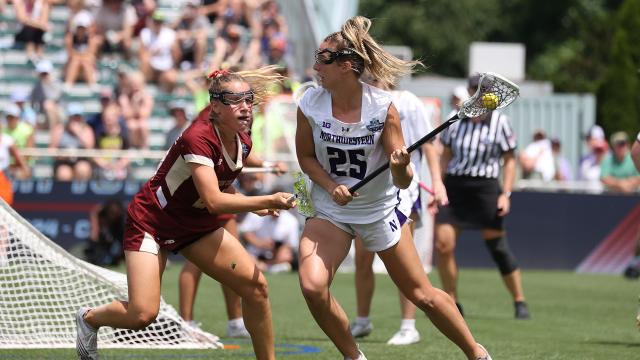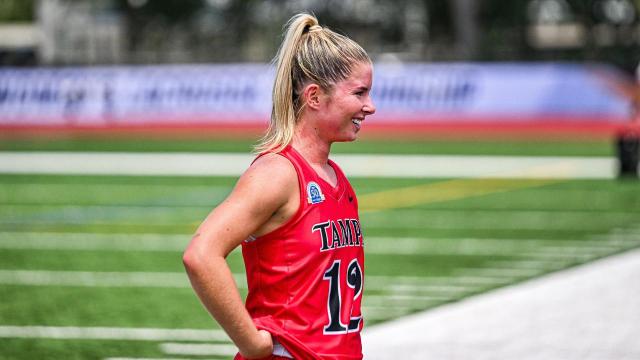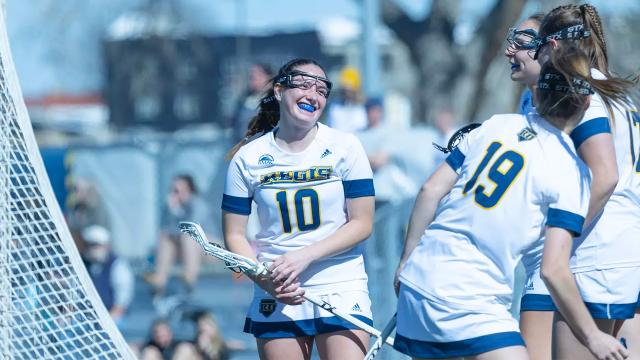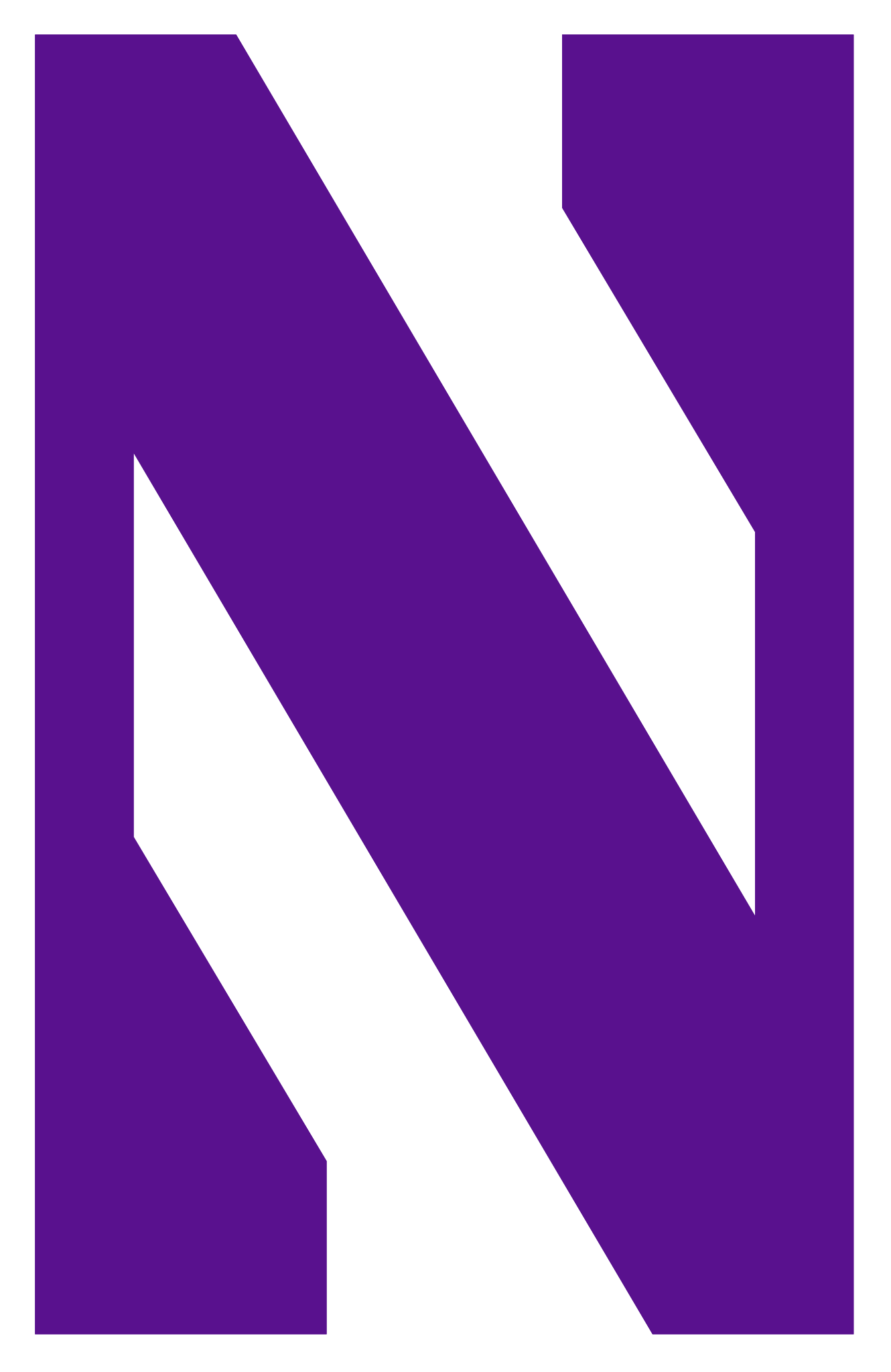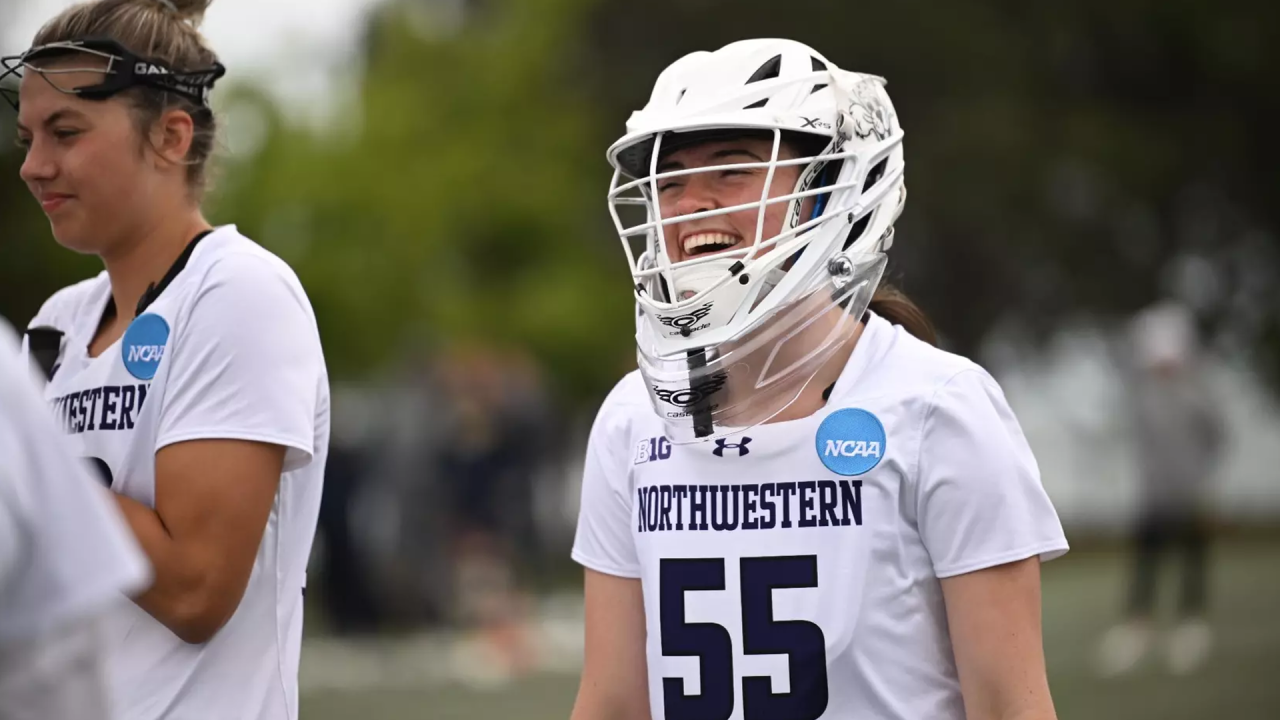
Mental Health Awareness with The Hidden Opponent: NU's Francesca Argentieri
USA Lacrosse is partnering with The Hidden Opponent throughout May, shining a light on student-athletes across the country doing their part to end the stigma surrounding mental health.
The Hidden Opponent is a non-profit and advocacy group that raises awareness about student-athlete mental health. With a network of hundreds of Campus Captains, The Hidden Opponent is making a significant impact across all sports.
Francesca Argentieri is a rising junior goalkeeper for Northwestern and a Campus Captain. She has seen the toll that mental health struggles can have on an athlete, and plays within a program that encourages its players to speak up.
Learn more about Francesca below, and head to USA Lacrosse’s Instagram for a look at her day.
Who is Francesca Argentieri? How did you get into lacrosse?
I'm from Syracuse, New York, which I would consider a big lacrosse hotbed. I jumped into the game right off the bat. From a young age, around 4 or 5, I first started playing with the youth leagues and then fell more in love with the sport as the years went on. I started meeting all my best friends through it. I started gaining a lot of opportunities for the game, so it was hard not to fall in love with that. I was able to start playing club in middle school and picked up from there. I was given the opportunity to play with Northwestern University, which I am so grateful for.
What was it about lacrosse that kept you going? What was it that really made you want this to be the sport that you played?
I'm the youngest of three and my older siblings were both lacrosse players. I also have an older cousin that played lacrosse, so I was used to being around the sport. I think when you have other siblings doing the same thing, it makes it a lot more fun. If you were ever at our house, we were always playing mini games or always doing something involving lacrosse. That was where I first found my love for the game because it was something I did with them and it was something we shared. My brother is five years older and my sister is three years older, so we we’re growing up in different parts of life, but with sports, it was always something we bonded over. Especially now, seeing them in the stands cheering me on. It's humbling, that full circle moment because they're the reason I fell in love with the game and now they're cheering me on.
What made you become a goalie?
It's a funny story. The real reason I became a goalie was because I was the youngest of three siblings and when we played a game with each other, we always needed a goalie. When my brother and his friends played in the backyard, they would put a GoPro on my helmet and I would stand there. Obviously, we were younger and I always wanted to hang out with my brother and his friends. If I wanted to hang out with them, I had to play goalie. I ended up falling in love with it, which I didn’t expect, but it worked out for the best.
Why Northwestern?
I did my recruiting during COVID, so a lot of recruiting through zoom calls and I didn't really have the chance to go in person as much as other people did. I had luckily gone to Northwestern in February right before COVID hit, so I had a chance to see the campus and I fell in love with it. In the back of my head, I knew it was a good option for me. I have to give all the credit to the Shanley girls, Kiera and Katie, who are actually from my area. I had my zoom call with them, and I felt so comfortable and so at home on those calls. It’s hard to make connections with people over the phone and to feel like you belong there.
Especially on my call with Kelly, we didn’t even talk about lacrosse. It was more about my family, how I was doing, which made me realize that's the reason Kelly is such a good coach and Northwestern is such a good program because they prioritized who you are as a person. That connection pushed me in towards them and I felt it was a good fit both on and off the field. it's a good place to be a good fit on and off the field.
How did you get involved with The Hidden Opponent and becoming a Campus Captain?
I originally heard about The Hidden Opponent in 2020, seeing some posts about mental health for athletes and eating disorders, which caught my attention because as an athlete, you don’t really see a lot of people talking about the mental side of things. I would say that I had been following Victoria [Garrick-Brown] for about three of four years and looked up to her as an athlete, especially the things she was doing both on and off the court. When I saw the applications open to become a Campus Captain, I thought it could be an awesome opportunity to bring this to Northwestern and connect with what we already have there.
Bring able to bring something else to Northwestern other than my academics and athletics is something I was excited about. It’s been an awesome journey so far.
Playing at the Division I level, do you see Mental Health issues pop up?
Absolutely. Being at Northwestern, there’s a lot of really high expectations and that's why Northwestern produces a lot of very successful people. But you're expected to be a very good athlete, a very good student, a very good person, etc. Sometimes, people forget that there's a big mental side to athletics. This is something that Northwestern does a really great job of addressing. We have a good psychology group and people that just check in on you. I would give a lot of credit to my teammates and our coaches, in the way we talk about mental health, it’s a very open conversation and we're very vulnerable with each other, which is really important.
Already having that was something that pushed me to want to be part of The Hidden Opponent because I saw what our team was already doing and how open we were and I thought, why not add more to this with groups like The Hidden Opponent. It’s a great group that connects you with people to learn more and that’s what I’ve enjoyed the most.
As much as you can have a sports psychologist, being an athlete and learning firsthand about these things, has been something I've loved about it, and just being able to carry that to my teammates and the conversations I have with them. Making the conversations more player-to-player rather than a higher up trying to explain these type of things.
What successes have you seen working with The Hidden Opponent and being a Campus Captain?
One thing I just enjoyed is learning how I can approach different situations. I think it's important to be able to advocate for other people and for yourself. All the training sessions we've gone through has been exciting to me. We've had our Hidden Opponent game a couple weeks ago, and we're able to raise money for it. That was something important to me as well, being able to make that contribution, too.
My favorite thing so far is being able to connect with other people who are passionate about mental health at Northwestern such as meeting with our soccer house and meeting with people who have the same goals as me at the same school. For me, it was a big learning year and kind of trying to educate myself and hopefully, next year, I’m going to look at starting a campus group and hope spread more of what I learned and help apply it to other people.
What is it that you'd like to ultimately accomplish at Northwestern or maybe beyond?
Being able to have all of the resources that we need and being more open. I want people to see that they have resources to get help and getting people to know that it’s a normal thing to seek help. At Northwestern especially, you're a very high-level student, a high-level athlete, and there's always times where you might not think there's time for mental health. So, I think really finding ways to implement little things and help people feel heard and not feel overwhelmed is something I really want to work on.
Finding a way for people to not feel like it's a burden to talk about their mental health and feel like it's more of a natural, day-to-day thing is something that I'm really working on and haven't quite figured out exactly what that looks like yet, but I'm excited to talk to other people and other reps and kind of figure out how we can make it more of an approachable confrontation.
Matt Hamilton
Matt Hamilton is the Content Marketing Manager at USA Lacrosse, having served as a staff writer for four years. He's a Baltimore native who loves the Orioles and Ravens, even if they let him down in the last year. He likes chicken tenders and Shirley Temples and sick views. He also loves writing about lacrosse.

Related Articles
